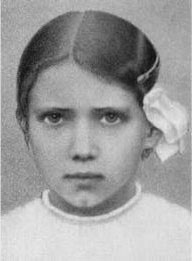Written by Luis Solimeo
A series of pictures in Milan's
Corriere della Sera of July 31 shows a typical scene on a modern beach on a calm and pleasant day. Leaving aside the aspects of immorality and prosaism, everything seems normal on Mappatella Beach in the outskirts of Naples. Some beachgoers are sunbathing on the warm sand, others chat peaceably; a lady applies sun block lotion on another; a girl warms herself languidly in the sun. A little farther away, some people swim. All is normal.
Or, rather, all appears to be normal.
In fact, these photos illustrate a chronicle by Paolo Di Stefano in the Milan daily titled:
Under the sunshade, next to a corpse, the indifference of beachgoers: some apply sun block, others swim... 1Di Stefano recounts how some bathers on the beach had seen a corpse floating strangely on the water, carried by the waves.
Was the person drowning? Or was he already dead? Who cares? The day was so beautiful, the sun so pleasant, the water so inviting.
At one point, one of the bathers called the lifeguards on his cell phone. That done, he went back to enjoy the delights of the beach. "It is not my job"
Since time went by and no help was forthcoming, another bather took the initiative to pull the corpse out of the water and lay him on the sand. Others threw bathing towels on top of him and opened a sunshade, partially hiding him. With that done, there was no longer the unpleasant view of a human corpse floating on the waves... and all went back to normal on Mappatella Beach.
This is how Antonio Sommaripa, 73 - a beachgoer like all others - died without any help right in the middle of the others, who continued to enjoy the pleasant Neapolitan beach.
Practical Atheism This episode, however, is tragic. It is tragic and shocking: a human being drowns in plain view of all those who, like him, were on the beach. No one moved to help him; no one was interested in finding out whether he was still alive or if anything could be done to save him. There was absolute indifference toward the tragic end of a fellow human being.
The poor victim had probably been baptized; and this being Italy, he was perhaps a Catholic. The indifferent bathers were also probably baptized and perhaps considered themselves Catholics.
However, their attitude was one of complete atheism: if a dolphin or a seagull washed onto the beach maybe their interest, or at least their curiosity, could have been awakened. However, how to explain such an indifference toward a rational creature, endowed with an immortal soul, made in the image and likeness of God (and whose eternal destiny was being decided that instant), except as indifference in relation to the Creator Himself?
Such indifference can be qualified as a form of atheism. It is certainly not a conscious and militant atheism that arrogantly proclaims that "God does not exist." It is a more subtle, almost intangible form of what could be called
practical atheism: one simply lives as if God does not exist.
As a famous maxim attributed to Dostoyevsky has it, "If God doesn't exist, everything is allowed." Likewise, it could be said that if God does not exist, nothing makes any sense. Hence you have a state of apathy or indifference for everything and everyone, including the Creator of all things.
Egoistic, Anti-Christian and Dehumanizing IndifferenceSuch absence of the most elementary feeling of compassion is telltale of the advance state of
de-Christianization and
re-paganization of the modern world, or, even beyond, the state of
de-humanization into which humanity is plunging.
This is the inevitable consequence of a society that deifies pleasure and despises morals. The end result is the most complete selfishness in which the person lives as if the only thing that matters is pleasure and self-interest, and if, at least in practice, he considers that there is no objective morals that imposes limits on one's desires and defines one's obligations toward one's neighbor. Each person closes up in himself and his neighbor is important only to the degree that he helps him satisfy his pleasures or caters to his interests.
Such a selfish indifference is not just anti-Christian but also
dehumanizing. Even some pagans understood the reciprocal bond that unites all men because of their common nature: "I am a man and nothing human is alien to me," Terence wrote in the second century before Christ.
Conversely, when man becomes estranged to things human, he himself loses his sense of humanity. Once the moral sense that binds individuals with their fellow creatures has disappeared, all that remains is a vague sentiment that will also disappear very soon.
The End of Sentiment and Rationality Indeed, man is so much a social being that he needs other human beings to make his feelings manifest. When someone is dominated by selfishness, his feelings become numb: its object is the individual himself and there is no complementariness from his fellow human being. This leads to complete indifference toward one's fellow creatures, which, in turn, leads to the death of one's own sentiments inasmuch as they are human.
And with the end of sentiment, rationality itself succumbs.
This is logical: sentiment is only a sensible manifestation of man's rational concern toward his fellow humans. This is what distinguishes him from animals, from the standpoint of sensibility. Animals, being irrational, do not have true sentiment but only blind instincts that guide them in their invariable behavior. Thus, the solicitude of a mother animal with her cubs while they cannot fend for themselves cannot be compared to human sentiment (except as a remote analogy). Animal behavior is merely instinctive and does not create any truly affectionate relationship or bond between parents and offspring. This is so true that all relationships cease when the cubs become adult: they mutually become strangers.
Only man, whose sensibility is guided by reason, can establish lasting relationships of affection and responsibility. It is his rationality that tells him that the bonds that link him to his fellow creatures derive from nature itself. It is because he shares the same nature of a rational and free being that he feels solidary with his fellow human beings.
Normally, this solidarity is manifested above all in moments of difficulty and tribulation, and especially at the hour of death.
The Solemnity of DeathModern culture tries hard to hide or banalize the reality of death. However, it is the fate common to all.
Death is the natural end of every man. For this reason, it is the most tragic and decisive reality for every human being. Every living being has a revulsion toward its own end. In an animal, this revulsion is purely instinctive. In man, it is rational. He is the only being who is conscious that with death, his earthly journey is over. This awareness and the uncertainty of what comes next put him in a state of complete contingency. This is why he needs more than ever, the sympathy and support of his fellow men.
A unique and inevitable development of this fact is that the moment of death takes on a special solemnity. It is the moment when a person is torn apart by the separation between soul and body.
This moment, terrible in itself, acquires supernatural grandeur when one bears in mind that once separated from the body, the soul appears before God, Who will decide on its eternal destiny.
The pagans of Antiquity and even savages shared the notion of the grandeur and seriousness of death. The Church and Christian civilization put together a whole ceremonial vested with the grandeur of the sacraments at the hour of death and gave funeral pomp a serious and sacral splendor.
A Lesson to be Drawn None of the above considerations appears to have dawned on the bathers of Mappatella Beach.
But pay attention! Do not think that this callousness and insensitivity before the death of a human being is something circumscribed to a group of anonymous bathers in a faraway Neapolitan beach!
Do we not see here, and all around the world, that same cruel impassibility before the extermination of millions of innocent lives through abortion? And is this not the same mentality that is paving the way for euthanasia, eugenic sterilization and other brutal aberrations?
And what to say of the silence and omission of so many others? It this not a form of complicity?
May these reflections be useful to all those who agree that not everything was normal on Mappatella Beach.
Footnotes
1.
http://www.corriere.it/cronache/09_luglio_31/di_stefano_sotto_l_ombrellone_accanto_a_un_morto_aacd1e56-7d92-11de-9f17-00144f02aabc.shtml
[back]








